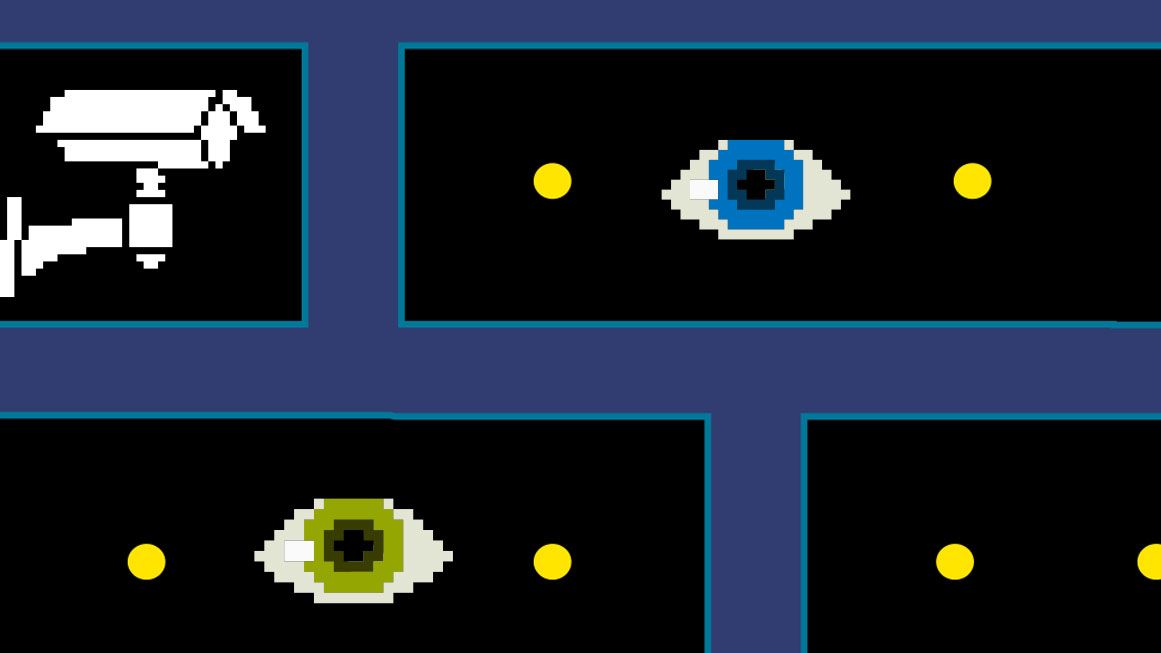Abolish the NSA and CIA
Ending these unaccountable agencies would safeguard civil liberties and improve intelligence gathering.

Citizens surely expect the government to be on watch against terrorist attacks like 9/11, against destabilizing aggression like Russia's invasion of Ukraine, and against clandestine efforts to steal military secrets or undermine our elections. Those are the explicit goals of the 18 secret intelligence agencies in the federal government, but the leading ones are the Central Intelligence Agency (CIA) and the National Security Agency (NSA). The mission statement of the CIA "is to preempt threats and further U.S. national security objectives," while the NSA's motto is: "Defending Our Nation. Securing the Future."
So far, so good.
But secret agencies are fundamentally resistant to oversight, especially by the very governments that create them. The Roman poet Juvenal famously asked, "Quis custodiet ipsos custodes?" That is usually translated as "Who will watch the watchers?" A more accurate translation is "Who will keep me safe from my watchers?"
In his 2020 book The Spymasters, journalist Chris Whipple quotes one former agency director as saying, "A president would never abolish the CIA because then he would have no one to blame." And the agency is colossally blameworthy.
The CIA failed to anticipate North Korea's invasion of the South, the Vietcong's Tet Offensive, the Iranian Revolution, the Soviet invasion of Afghanistan, the collapse of the USSR, the 9/11 terror attacks, the Arab Spring uprisings, and Russia's invasion of the Crimean peninsula. The agency's fingerprints were on the Bay of Pigs fiasco and on specious reports of weapons of mass destruction in Iraq. Blowback from the CIA's covert political meddling gave us an Islamist regime in Iran and its concomitant support of Hezbollah, Hamas, and the Houthis, not to mention the creation of Al Qaeda and the Islamic State. And then there's the agency's brutal, useless, and illegal post-9/11 torture program.
As for the NSA: Americans should be grateful to Edward Snowden for revealing how that agency misused Section 215 of the USA PATRIOT Act and Section 702 of the Foreign Intelligence Surveillance Act to spy on our telephone and internet communications. The unconstitutional bulk collection of domestic telephone records finally ended when Section 215 expired in 2020. But in April 2024, Congress further abetted warrantless NSA domestic spying by expanding Section 702 powers to require data centers, cable companies, and even landlords to give the agency access to our private communications.
This despite the fact that more than 10 years ago, a report by the Review Group on Intelligence and Communications Technologies warned that in the aftermath of a significant terrorist attack, "the powerful existing and potential capabilities of our intelligence and law enforcement agencies might be unleashed without adequate controls. Once unleashed, it could be difficult to roll back these sacrifices of freedom." With the expansion of Section 702, our country continues marching toward what former NSA cryptographer William Binney called "a turnkey totalitarian state."
History shows that the security benefits of the CIA and NSA are far outweighed by the risks they pose to our civil liberties. And so they should be abolished. And no, this would not leave our military leaders blind to the machinations of our adversaries. Codebreaking, geospatial analysis, and electronic surveillance of foreign actors could continue under the purview of the Defense Intelligence Agency.
In his 1995 article "Does the CIA Still Have a Role?" the former CIA man Roger Hilsman cogently argued that it did not. "Since the vast majority of the intelligence information on which U.S. policy depends comes from analyzing open sources of foreign publications and broadcasts, routine diplomatic reporting, and the activities of newspaper reporters, and only a tiny fraction comes from espionage or covert action," he concluded, "the effect on the amount of information available to policymakers would be minimal." Nearly 30 years later, open source intelligence still comprises the bulk of policy makers' information about the activities of both state and nonstate actors.
In 1995, Sen. Daniel Patrick Moynihan (D–N.Y.) introduced a bill to abolish the CIA. The creation of the agency, he argued, had "undermined the role of the Department of State as the primary agency of the United States Government in formulating and conducting foreign policy and providing information to the President concerning the state of world affairs." His legislation would have restored the CIA's usurped foreign information gathering and analysis services to the State Department.
By ending these unaccountable agencies' illegitimate activities and transferring most of the rest to the State Department, we can reduce the risks to our civil liberties and align intelligence gathering more closely with diplomatic objectives. That will protect our liberties while making American actions on the global stage more consistent with our values and our long-term strategic interests.


Show Comments (6)